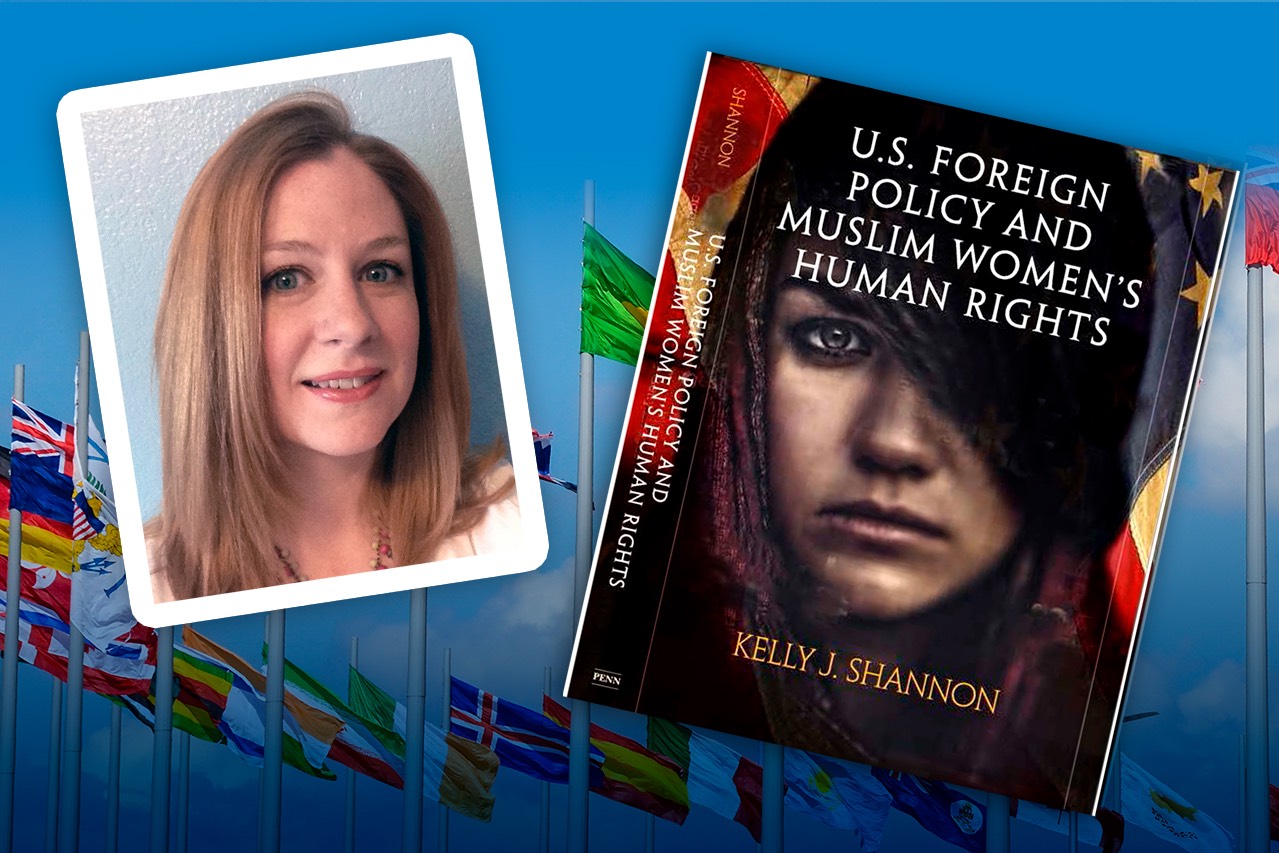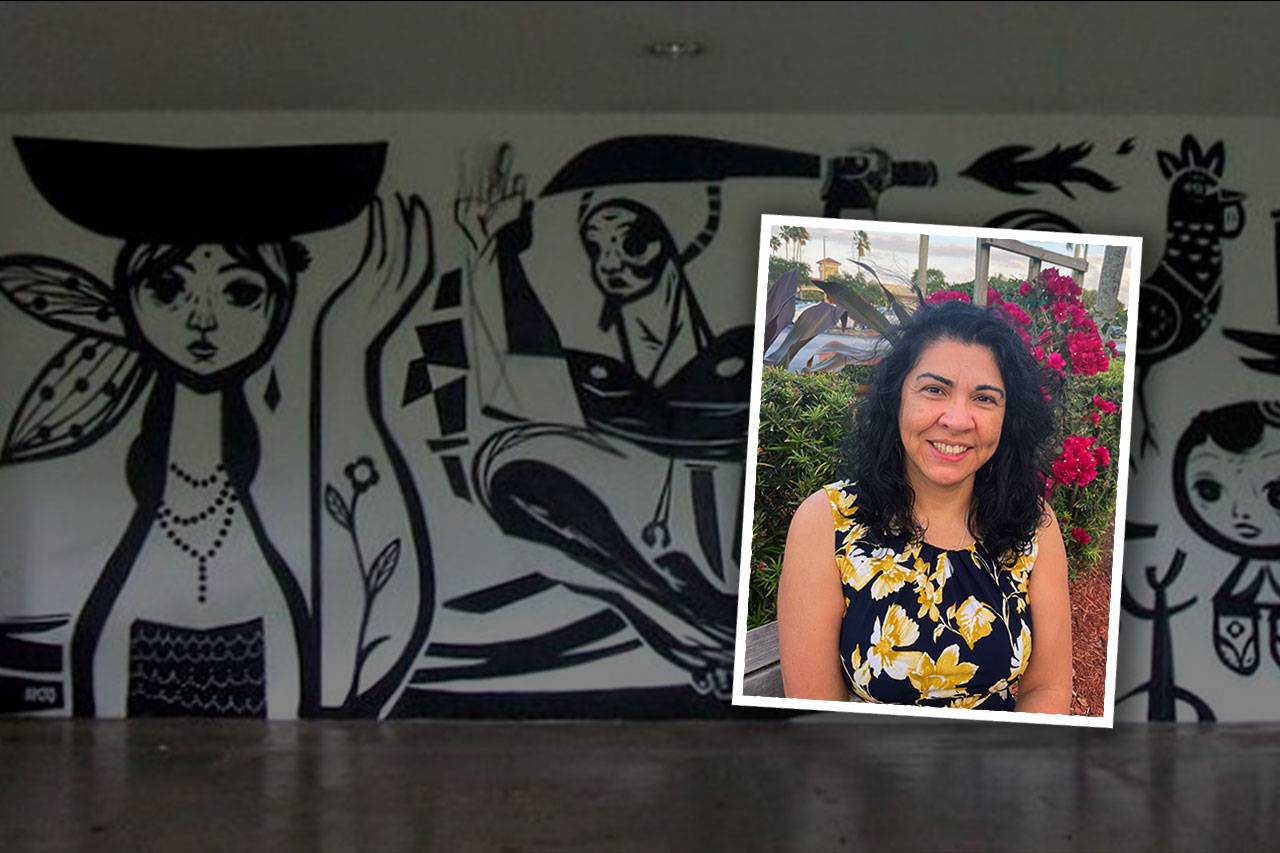Research Thursdays - Promoting Equity and Understanding of Diverse Cultures
Thursday, Jun 25, 2020
Images (l/r): Kelly J. Shannon; Book cover of “U.S. Foreign Policy and Muslim Women’s Human Rights” (2018);

Kelly J. Shannon, Associate Professor of History and the Chastain-Johnston Middle Eastern Studies Distinguished Professor in Peace Studies, has been appointed the new director of FAU’s Peace, Justice, and Human Rights Initiative (PJHR). PJHR’s mission is to work toward developing and sharing the best practices for promoting tolerance and understanding of diverse cultures. It offers a unique multidisciplinary framework operating across the University to invite engagement by all members of the community and external partners in research, scholarship, creative activities, and applied practices that realize a more just and peaceful world.
Shannon is well suited for her new role as she previously served as a Faculty Affiliate with FAU’s Center for Women, Gender, and Sexuality Studies and has been actively involved in the PJHR Initiative since its launch in 2014. Her previous involvement in PJHR includes serving as an inaugural Fellow, organizing events featuring guest speakers, participating in faculty groups, developing a “History of Human Rights” course for the Peace Studies certificate, and collaboration with local justice organizations, such as the Hollywood chapter of the Women’s March and the Boca Raton Martin Luther King, Jr. Day committee. She has previously served as a Thomas Davis Fellow at Temple University’s Center for the Study of Force and Diplomacy and is an active member of the Society for Historians of American Foreign Relations (SHAFR), where she was a founding member and co-chair of the Committee on Women. She now serves an elected three-year term on SHAFR’s Executive Council and heads that association’s task force on sexual misconduct.
Shannon’s research is concentrated in 20th and 21st century U.S. foreign relations and international history, with particular attention to the Islamic world, Iran, women, transnational feminism, and human rights. She is the author of U.S. Foreign Policy and Muslim Women’s Human Rights (2018) and is also the winner of the 2019 Stuart L. Bernath Lecture Prize awarded by SHAFR, which recognizes scholarly excellence by a historian under age 40. Her Bernath Lecture was published in Diplomatic History in June 2020. Shannon also recently received a Rockefeller Archive Center Research Stipend to support research for her new book project, The Ties That Bind: U.S.-Iran Relations, 1905-1953. The book is a comprehensive historical study of the formative years of the U.S.-Iran relationship, from Iran’s Constitutional Revolution (1905-1911) through the 1953 U.S.-British coup in Iran. This project has also received support from the National Endowment for the Humanities (NEH) Summer Stipend and from FAU.
Based on her current research, Shannon was chosen to be a Fellow for the Bridging the Gap 2020 International Policy Research Institute (IPSI) in Washington, D.C., which has been postponed to summer 2021. Because of her expertise on U.S. – Iran relations, Shannon published an op ed in The Washington Post’s “Made by History” column on January 8, 2020 addressing the diplomatic tensions following the U.S. assassination of Iranian Major General Qasem Soleimani. She also wrote and submitted a chapter related to her current book research titled “The Shuster Mission of 1911 and American Perceptions of Iran’s First Revolution” that is in press for publication in the book American-Iranian Dialogues: An International History from Constitution to White Revolution, edited by Matthew Shannon (NB: Kelly Shannon and Matthew Shannon are not related). That book is part of Bloomsbury Academic Press’s New Approaches to International History Series and will be available in print in late 2020 or early 2021.
“I believe deeply in PJHR’s mission. I am committed to supporting and promoting teaching, learning, research, community engagement, and other activities here at FAU that address the myriad structures of power and oppression that exist in order to contribute meaningfully to the fight for peace, social justice, and human rights.”
Kelly J. Shannon, Associate Professor of History; Chastain-Johnston Middle Eastern Studies Distinguished Professor in Peace Studies; Director, FAU’s Peace, Justice, and Human Rights Initiative (PJHR)
For more information about FAU’s PJHR Initiative, visit fau.edu/pjhr


